AITA for wearing a two piece to my kids’ swimming lessons?
In a world where appearance often fuels judgment, one mom’s swimming lesson mishap has sparked a conversation on body positivity and self-acceptance. A 27‐year‐old mother of quadruplets attended her child’s one-on-one swimming class in a two-piece swimsuit, unaware that her stretch-marked midriff would soon become the center of unsolicited opinions.
The incident unfolded quietly during the week until a few mothers gently expressed discomfort about her visible stretch marks, suggesting she cover up next time. This encounter, although brief, left the mom questioning whether the comments were honest concern or unnecessary criticism.
Despite the discomfort, her husband defended her choice, affirming that her body—having carried quadruplets—deserves celebration rather than judgment. The incident opens a broader discussion about societal expectations and the right to embrace one’s natural body changes.
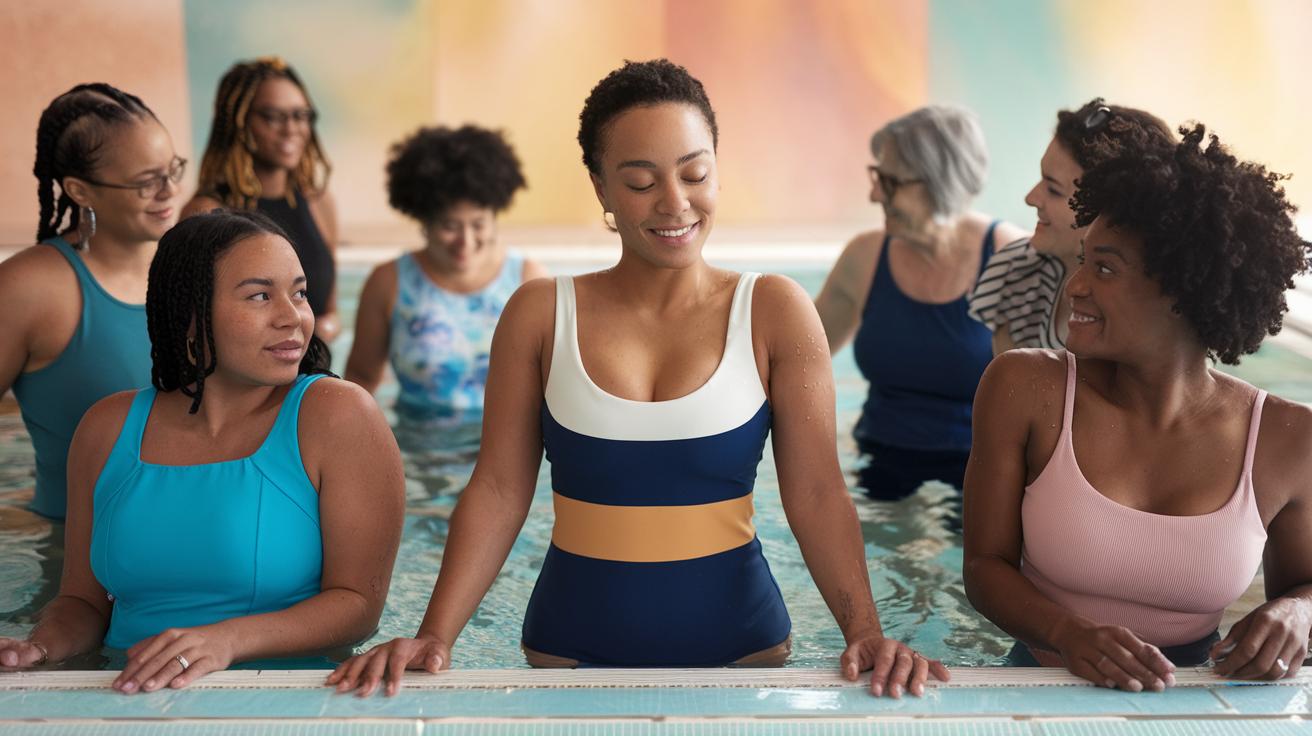
‘AITA for wearing a two piece to my kids’ swimming lessons?’
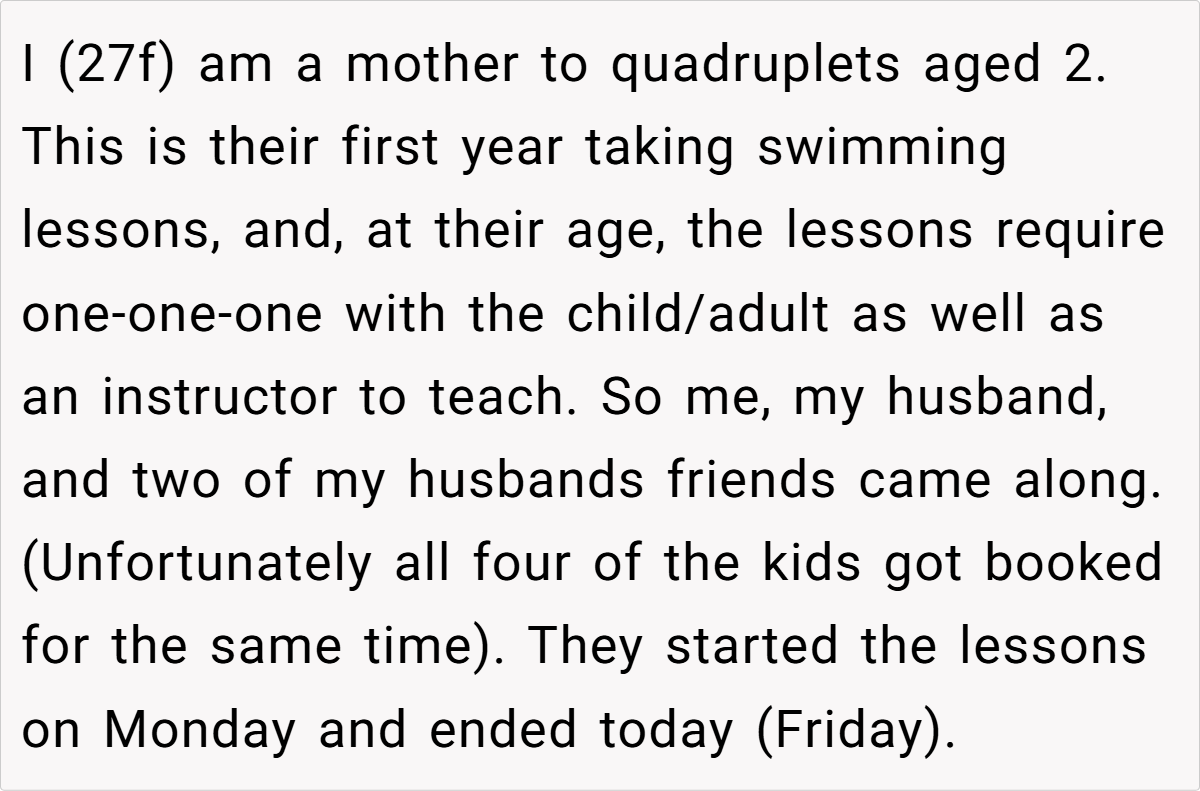
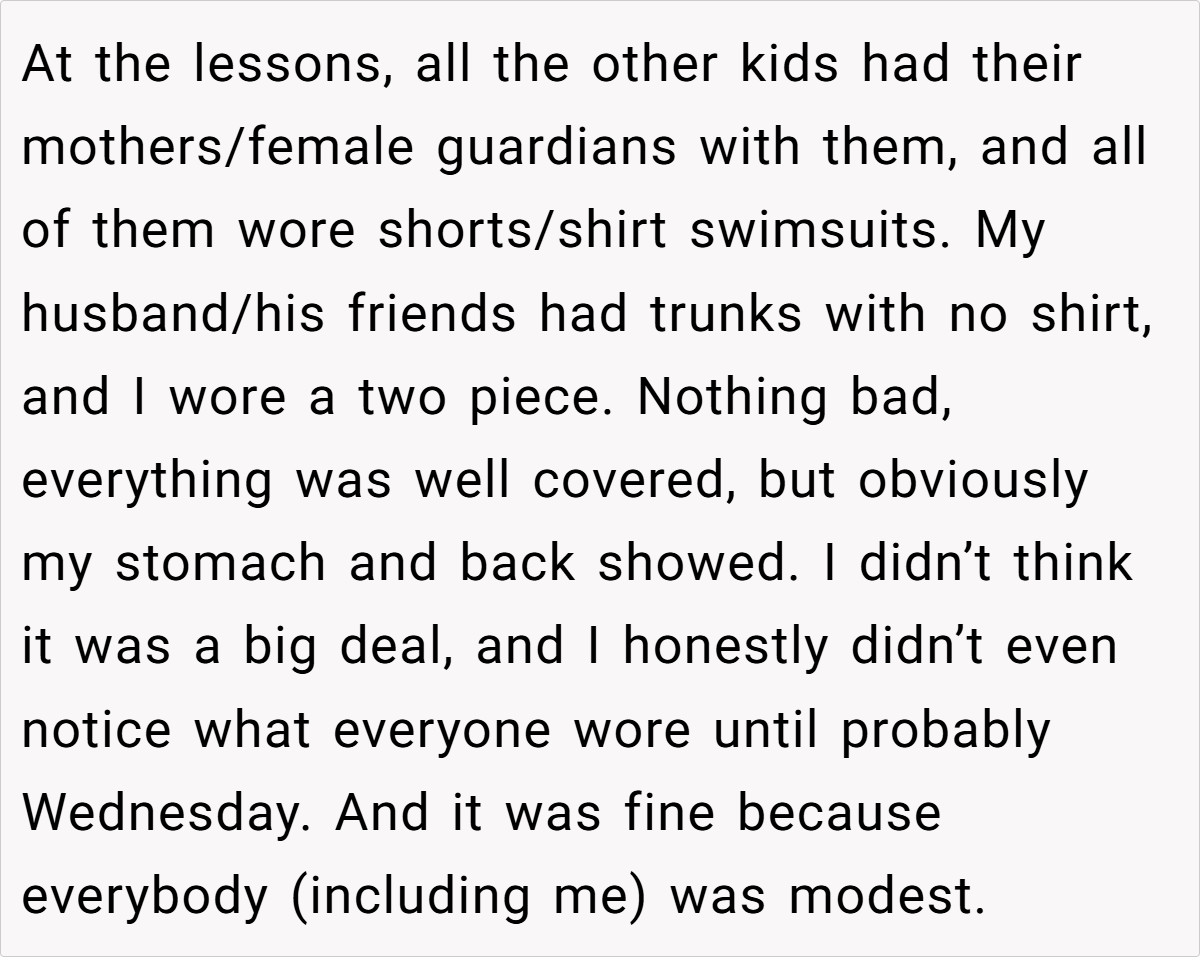
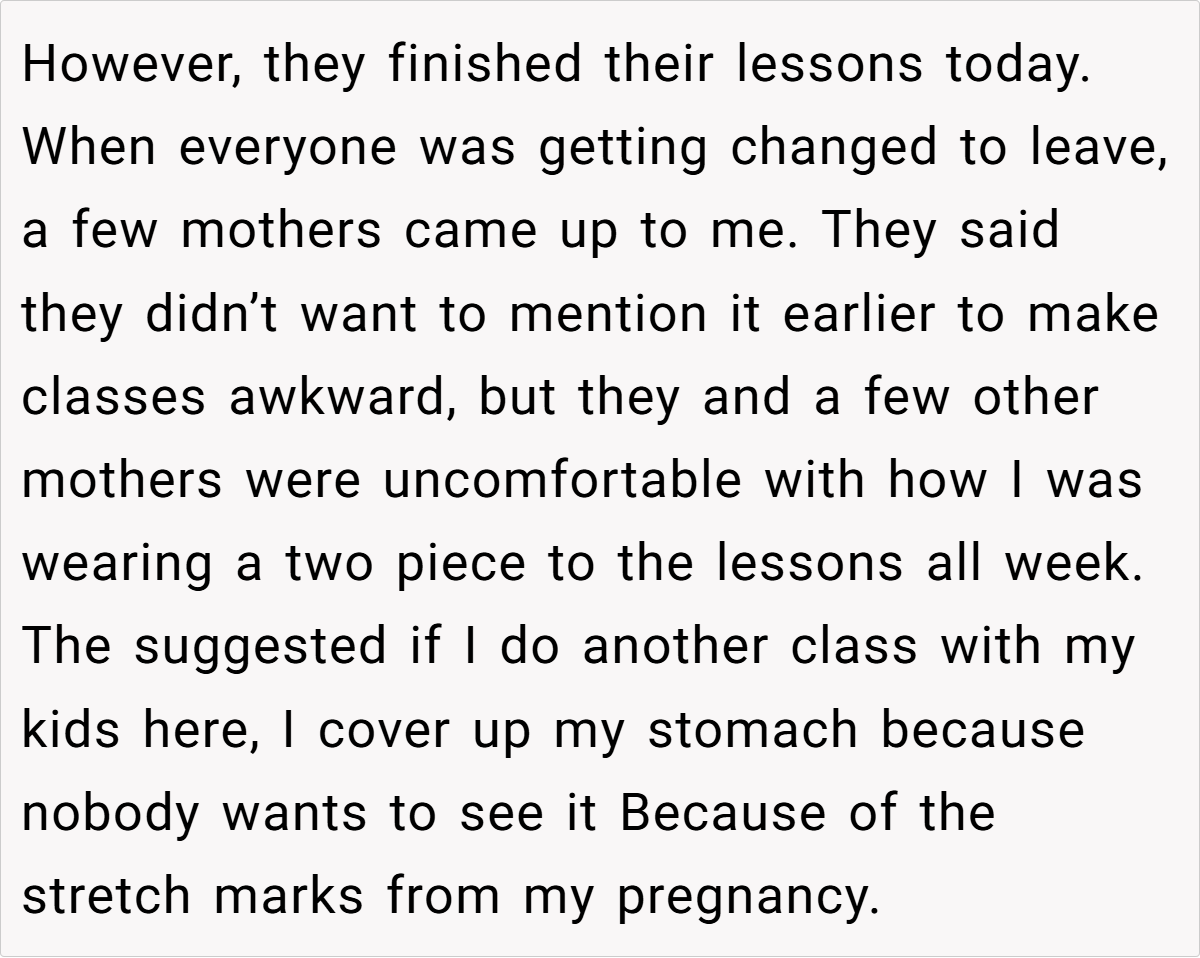
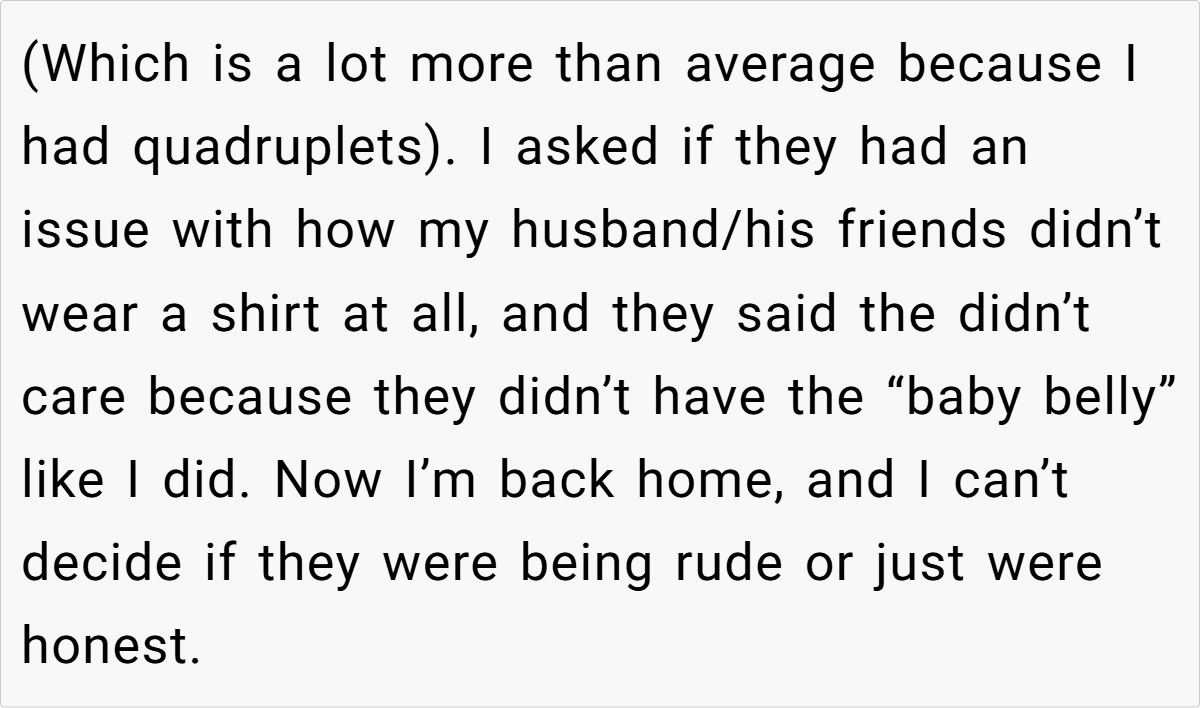
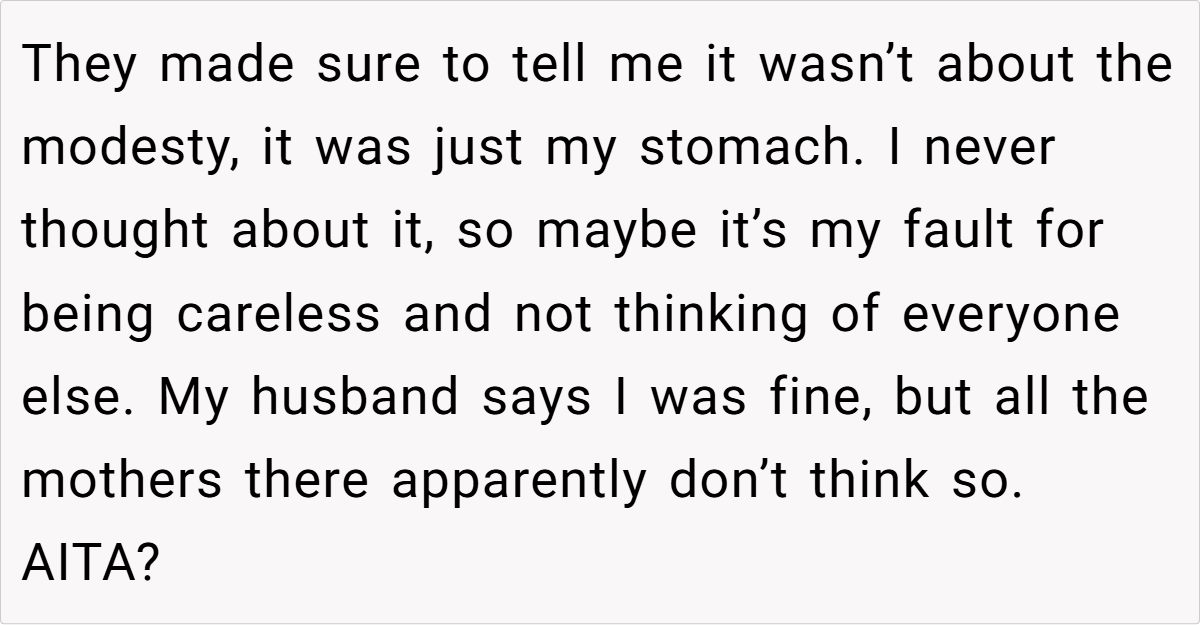

Letting your body tell its story is both courageous and essential. In analyzing this incident, experts note that visible stretch marks are natural signs of life and transformation. Dr. Elizabeth Rogers, Associate Clinical Director at Bupa Health Clinics, explains, “Stretch marks are a natural part of life, but they can cause emotional and mental distress,” she says, emphasizing how pressures from social media and unrealistic beauty standards can amplify personal insecurities.
It’s important to understand that stretch marks often develop as a natural consequence of growth, pregnancy, or hormonal shifts. They are not imperfections to be hidden, but rather badges of honor that chronicle our life experiences. Many dermatologists assert that while cosmetic treatments exist, the true remedy lies in shifting focus toward self-acceptance and mental well-being. This perspective encourages individuals to value what their bodies have accomplished over societal pressures to conform.
Furthermore, research suggests that the negative impact of body shaming extends far beyond superficial appearances. Studies have linked body shaming to increased levels of stress, anxiety, and diminished self-esteem. Experts argue that support from loved ones is crucial in counteracting these effects. By validating personal choices and experiences, families and communities can create a more inclusive atmosphere that celebrates diversity in body shapes and forms.
Equally significant is the societal responsibility to foster an environment where empathy replaces judgment. Educational initiatives and supportive dialogues can help dismantle harmful stereotypes. As more voices in the media and among health professionals advocate for body positivity, individuals are increasingly empowered to reject outdated beauty ideals. This shift not only benefits personal mental health but also cultivates a culture of acceptance and mutual respect.
In light of these insights, many experts advise that the focus should be on the functionality and life-giving strength of one’s body rather than its aesthetic perfection. As Dr. Rogers reminds us, “Our bodies are remarkable—they carry our stories, our challenges, and our triumphs.” This expert perspective offers a refreshing reminder: the journey of life is written in our skin, and every mark is a chapter worth embracing.
Check out how the community responded:
Overall, the community’s response was a mix of support and lighthearted humor. Many shared that body marks like stretch marks are natural milestones of life—symbols of strength, growth, and motherhood. They emphasized that such features deserve celebration, not criticism, and noted that personal confidence should always come first. In essence, the community agreed that embracing one’s body, flaws and all, is far more important than adhering to outdated standards of modesty.
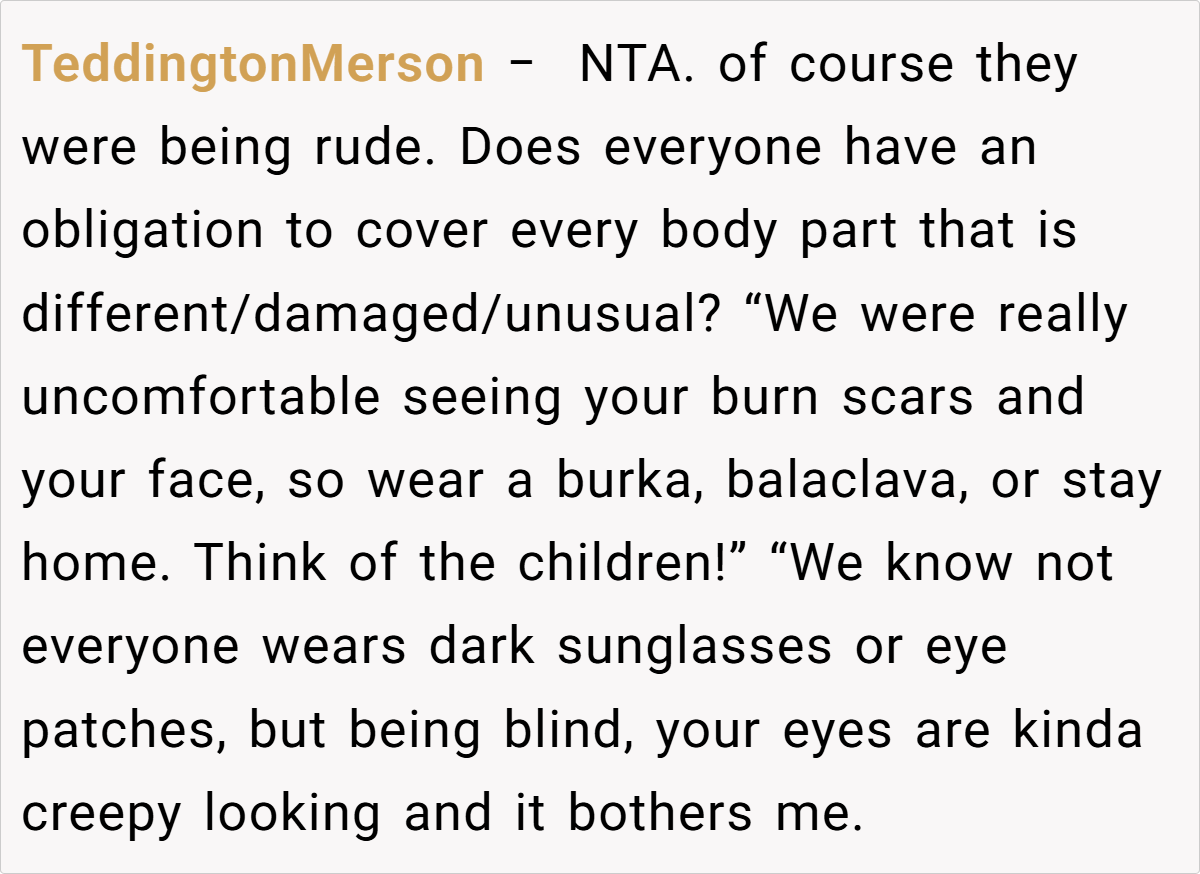
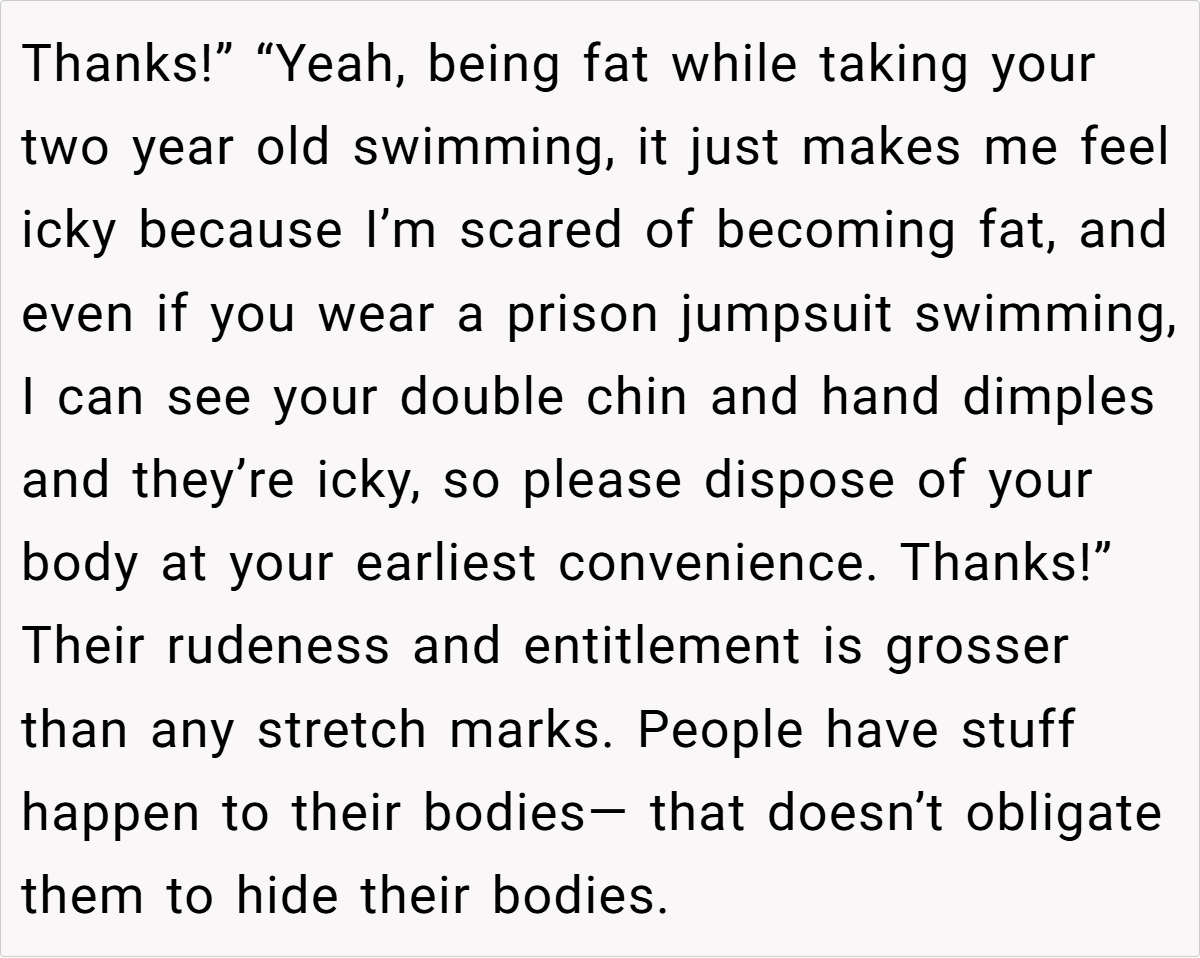
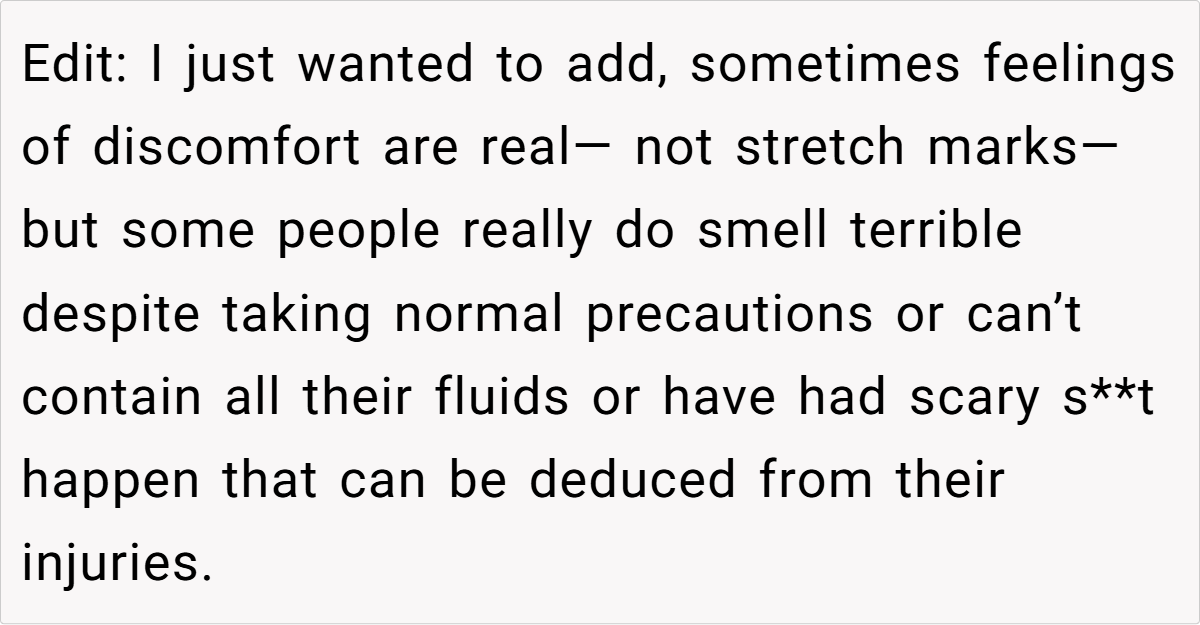
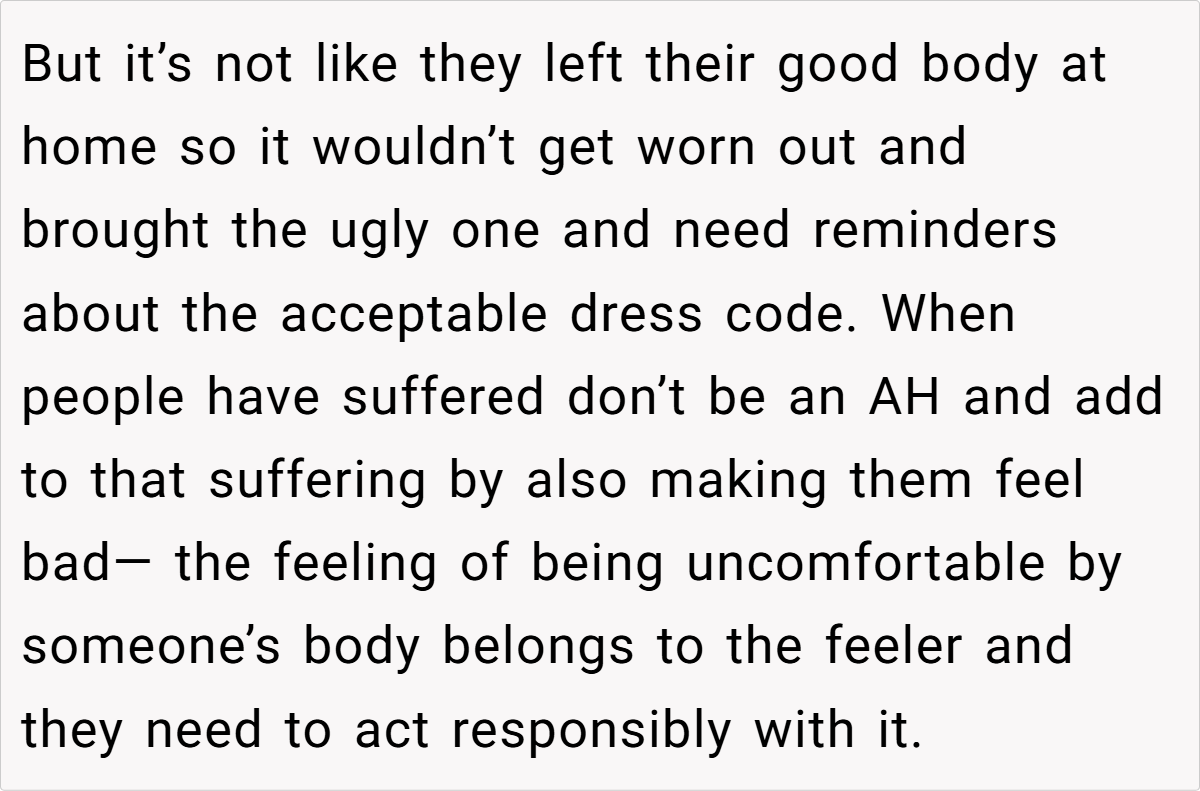

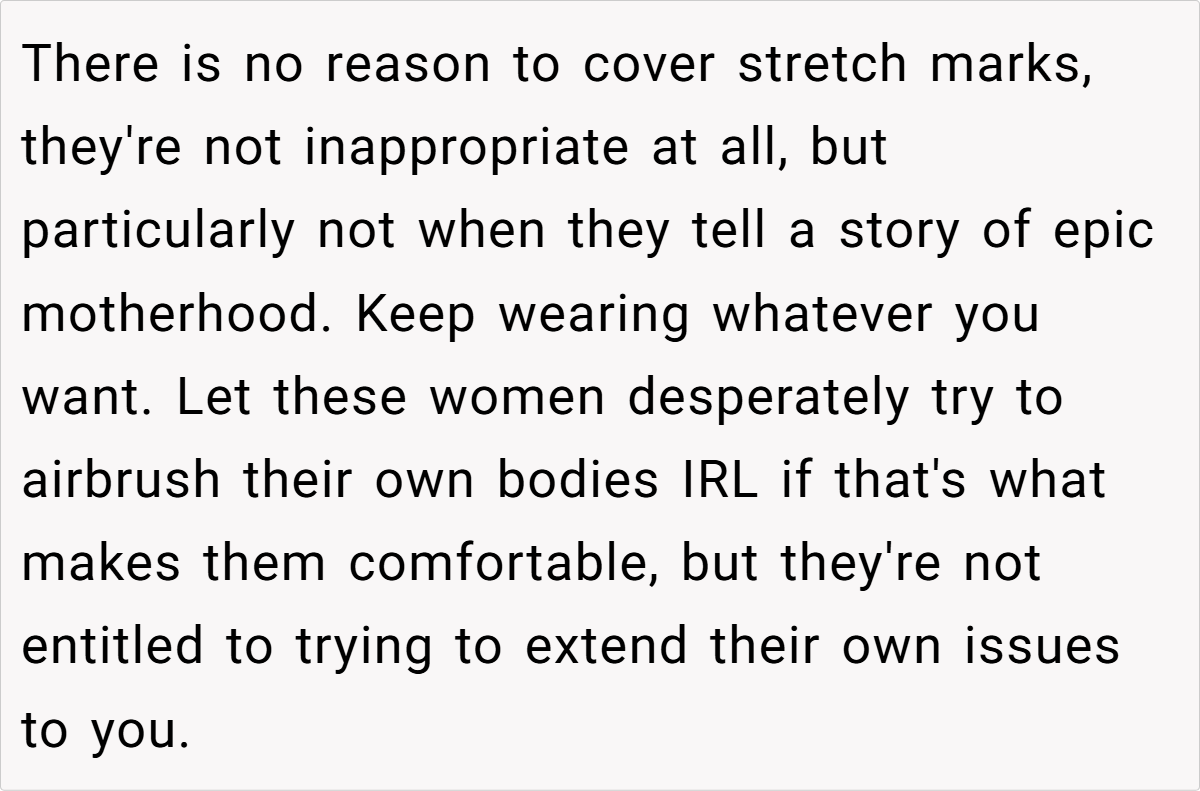
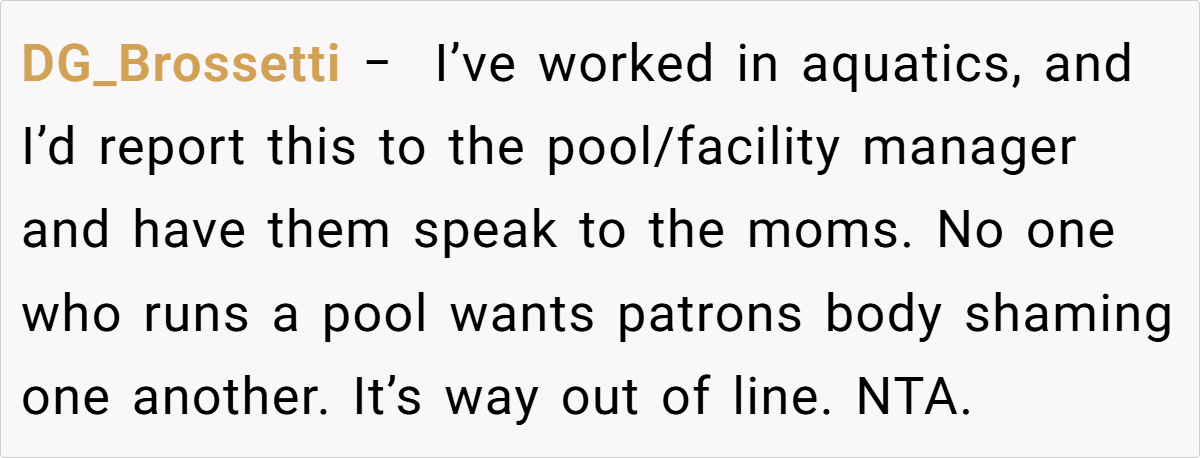

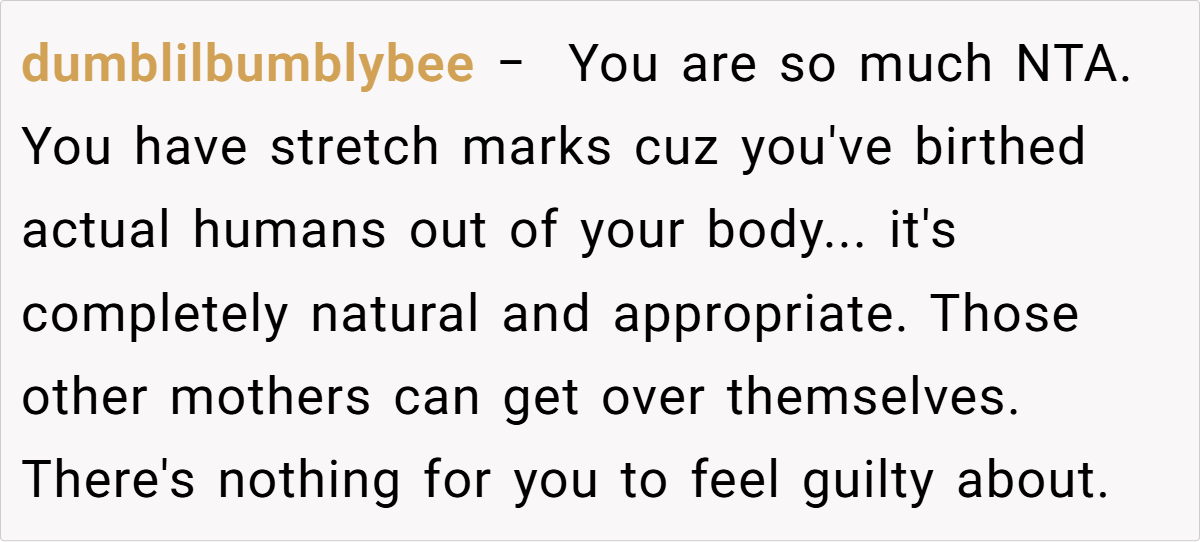
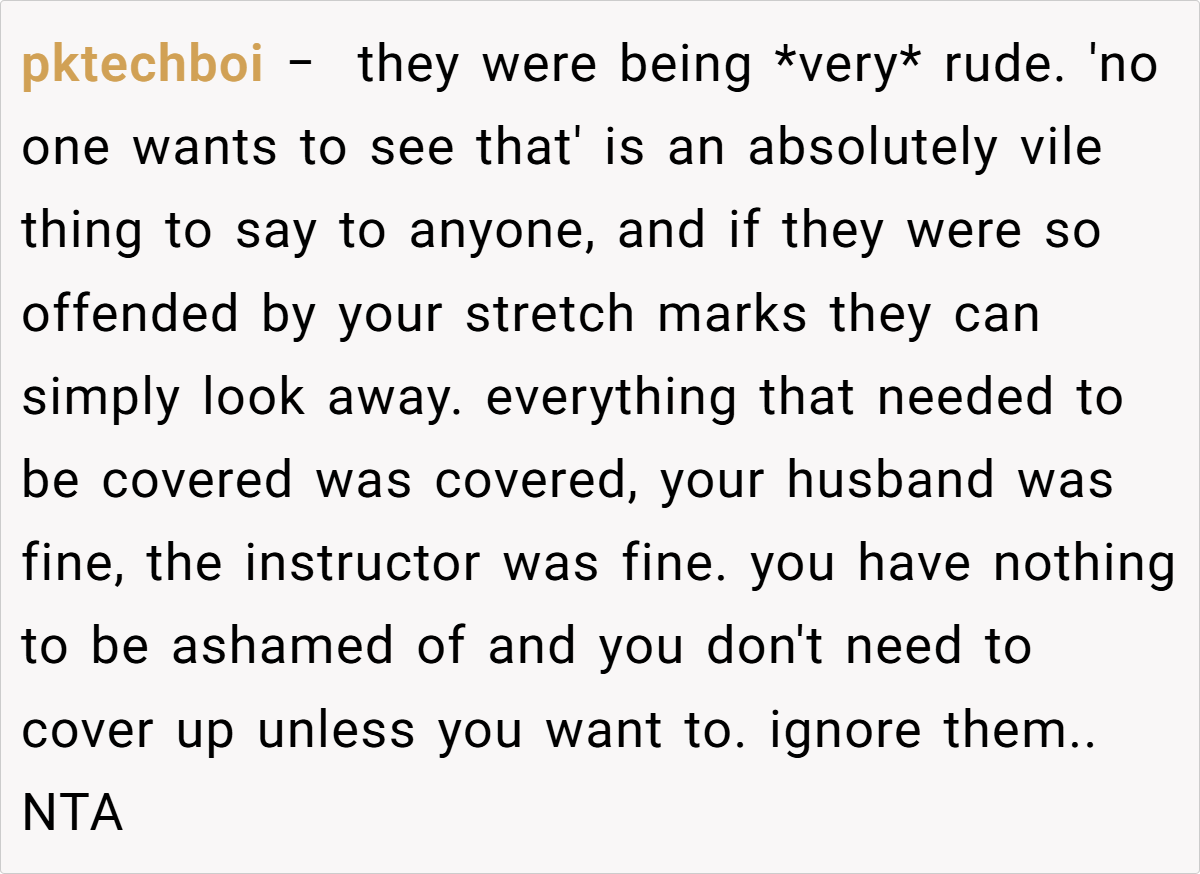
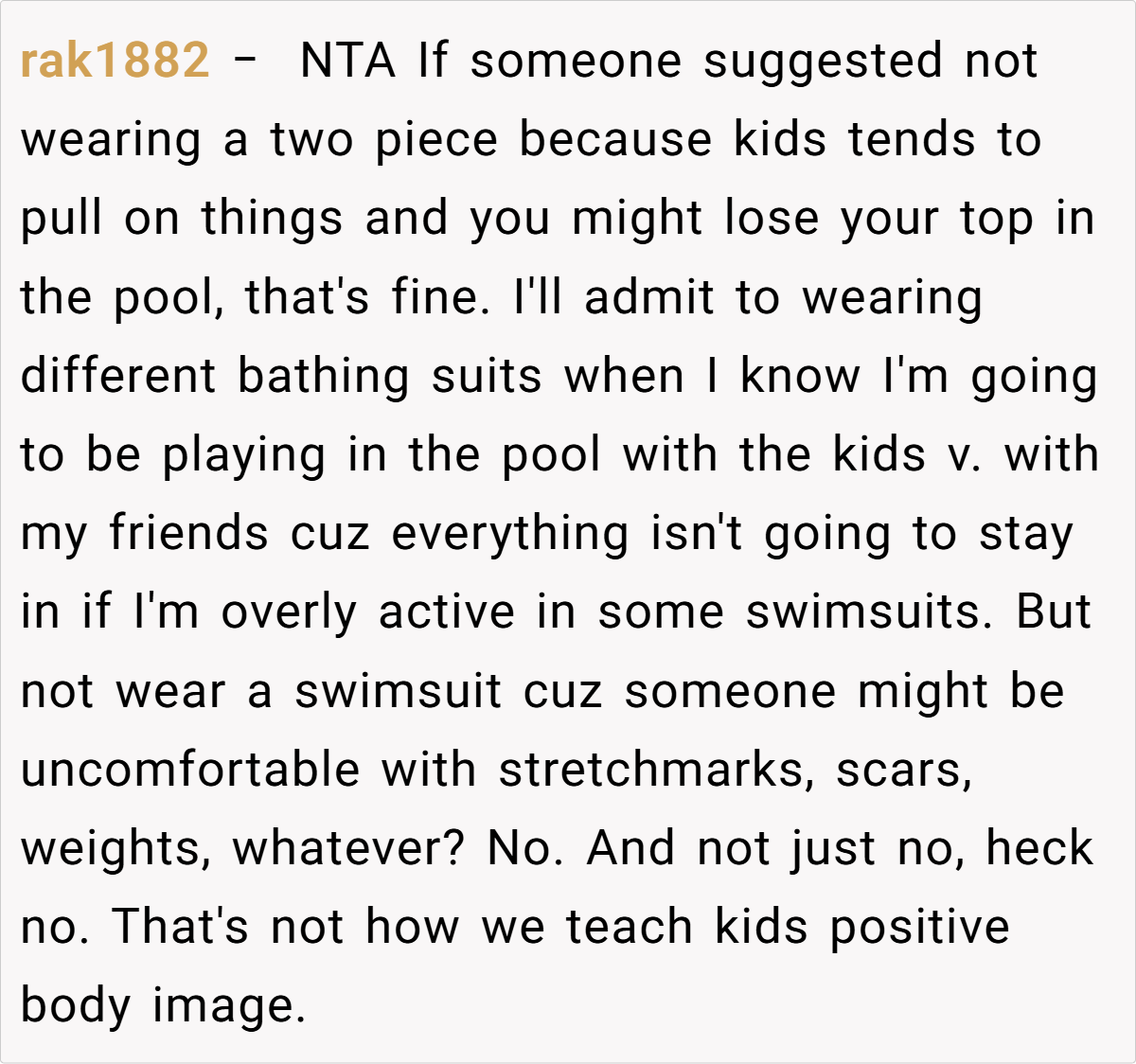
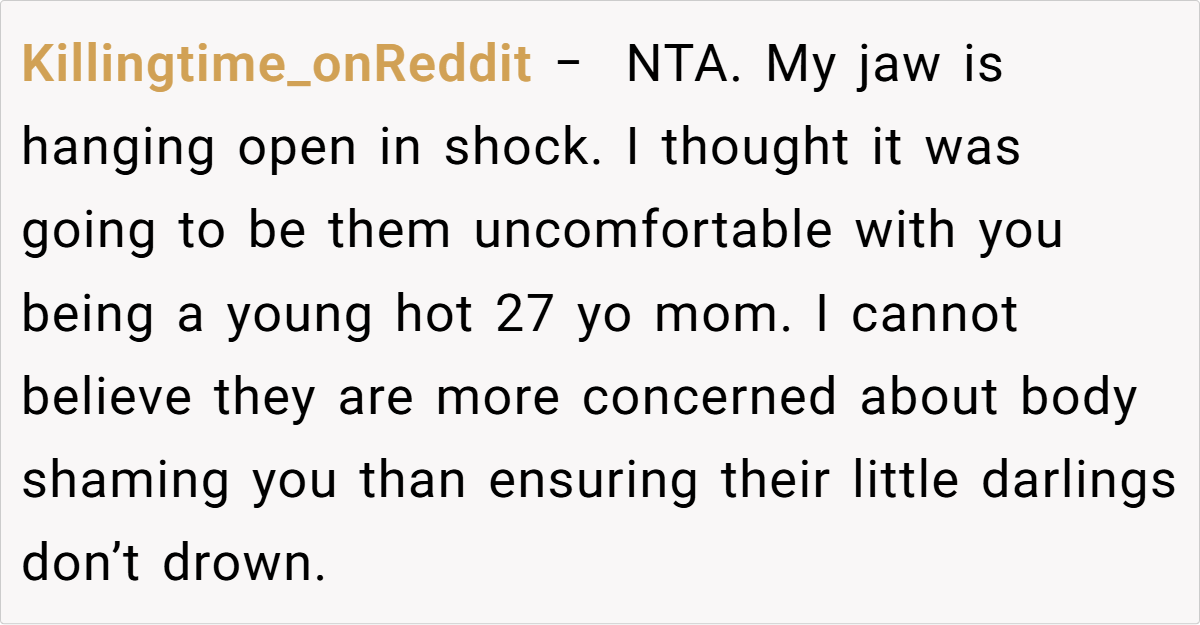

Ultimately, this swimming lesson saga invites us to reflect on our own biases. Is modesty a genuine concern, or simply a veil for body shaming? Share your thoughts and experiences—what would you do if you found yourself in a similar situation? Let’s continue the conversation and celebrate every chapter our bodies write.

